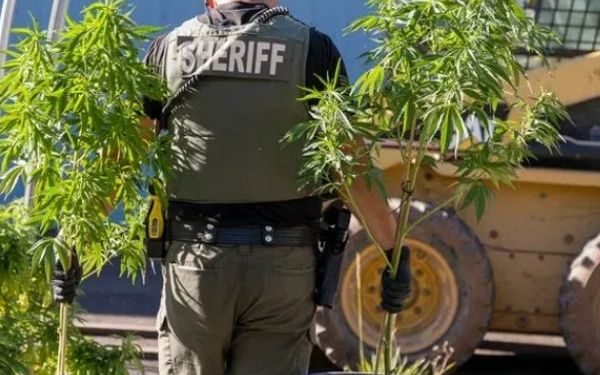ROSEBURG, Ore. — A new bill passed in the Oregon Senate seeks to crack down on landowners who knowingly allow illegal cannabis cultivation, aiming to curb related crimes like water theft and human trafficking.
Senate Bill SB 347 A proposes ending special tax assessments for properties where owners are caught permitting illegal grows. These assessments are typically added to property taxes to fund public improvements like roads, sewer systems, or sidewalks that benefit the land directly.
“We introduced this legislation to discourage farmland owners from leasing or accepting payment for illegal grows and to make them more aware of what’s happening on their land,” explained State Senator David Brock Smith. “Landowners must take responsibility for their property. This bill puts that responsibility front and center.”
Douglas County Commissioner Chris Boice, who helped draft the bill alongside the Oregon Farm Bureau, emphasized how illegal cannabis grows often lead to broader criminal activity.
“Illegal marijuana cultivation brings multiple issues,” Boice said. “Toxic pesticides, herbicides, and fertilizers are used near rivers without regulation. Then there’s human trafficking, poor living conditions for workers, and the environmental destruction left behind. It’s all harmful.”
Human Trafficking Concerns
In Douglas County, the human trafficking task force highlighted the serious risks associated with illegal grow sites.
“We’ve found these areas to be high-risk for both labor and sex trafficking. These illicit operations originate from countries like China, Russia, Ukraine, Mexico, Honduras, Laos, and even local sources in Southern Oregon. In Douglas County alone, we’ve identified over 150 trafficking victims and survivors, many exploited through the illicit marijuana industry.
Labor trafficking is common in this sector. Recruits from abroad are promised good pay and a chance to work in the U.S., but they end up in unsafe, outdoor conditions with no basic facilities. Their earnings—if they get paid—are often taken for their ‘care,’ and they’re forced to work around the clock.
Those who are undocumented live in fear of law enforcement and can’t seek help. Traffickers use threats and their immigration status to keep them compliant. These individuals lack access to healthcare, freedom of movement, and often don’t speak English or know their rights.”
The task force believes that although the exact number of human trafficking victims at illegal grow sites remains unknown, such exploitation likely exists in every county across Southern Oregon.











